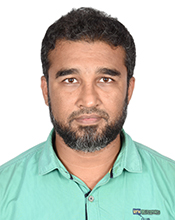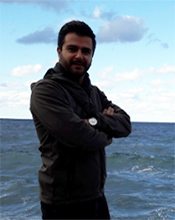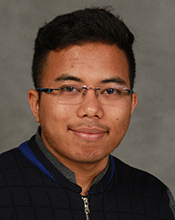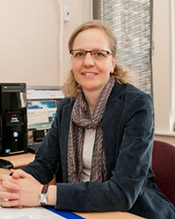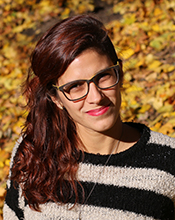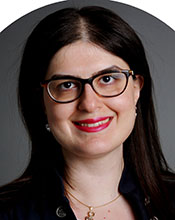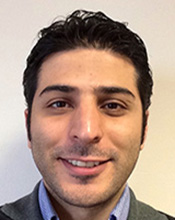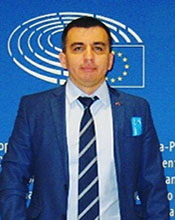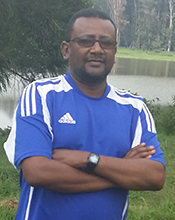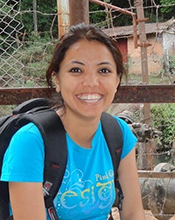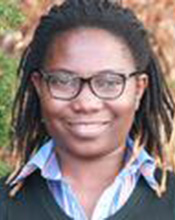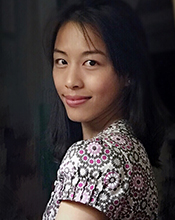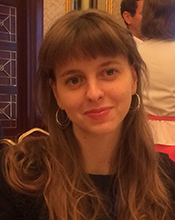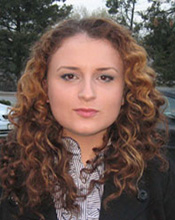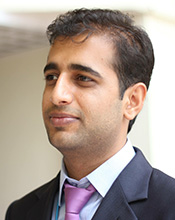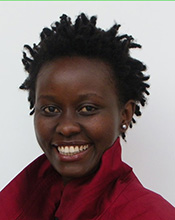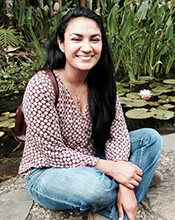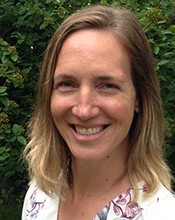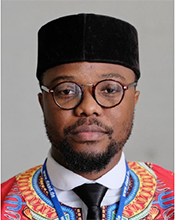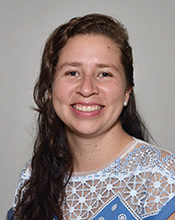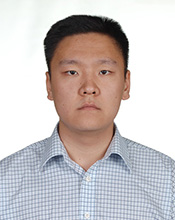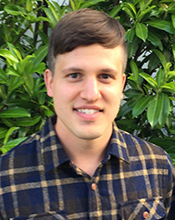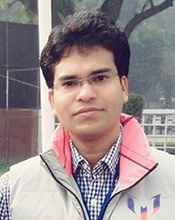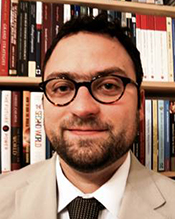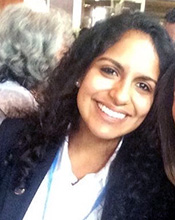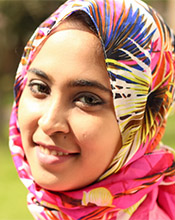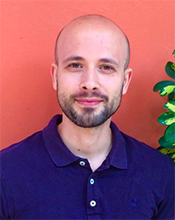Participants 2017
Participants
The short bios are presented in alphabetical order. This shall give speakers and fellow participants an idea about the professional backgrounds of the attendees of the forthcoming summer school.
Last update: 02.09.2017
Rukhen Uddin Ahmed
has been working in the field of development cooperation for more than 16 years as a researcher, full time development professional and consultant in Bangladesh and abroad. He has experience to work as a senior advisor on Urban Management and Governance for the German Development Cooperation (GIZ), Bangladesh in the area of Urban Governance and Management for more than five years. He has experience to work as consultant mainly for the Asian Development Bank (ADB) Manila, Spanish Cooperation (AIDA), Borda Bremen, Germany as well as HIFAB International Sweden, (HIS), the International Institute of Urban Management of Erasmus University Rotterdam, Netherlands, IOM, BRAC, ActionAid Bangladesh and TARANGO for more than seven years in Bangladesh and abroad for doing the baseline study, mid-term evaluation, impact assessment of project and program action research. Rukhen has completed his MSc in Social Science from the Bangladesh National University and participated in different development training courses on M&E, Local Governance finance and management, Fiscal Decentralization, Climate Change and Sustainable Development, Citizen Participation from Duke University (USA), Harvard University (USA), Humboldt University (Germany), Dtalk Dublin (Ireland).
Sadroddin Alavipanah
is perusing his PhD in the Institute of Geography and Laboratory of Landscape Ecology at Humboldt University of Berlin. He is an environmentalist who is interested in understanding inter-disciplinary approaches. Sadroddin mastered his science in Environmental Global Change studies from University of Bayreuth, Germany, and received his B.Sc. in Biology from University of Tehran, Iran. He trained his remote sensing skills at the German Aerospace Center (DLR) and worked with the World Wildlife Fund for Nature (WWF) prior to coming to the Humboldt University. Since 2014 he has been lecturing Geographic Information Systems (GIS) at Humboldt University. He has published several peer-review articles at high ranked international journals and currently is finalizing his doctoral research on employing a multi-dimensional approach to adapt cities with the changing climate. Sadroddin’s long term career goal is “to sustain the cities with nature-based solutions”.
Lincoln Muniz Alves
is from Brazil. He is researcher (permanent position) at Earth System Science Centre (CCST) of the National Institute for Space Research (INPE). His personal research has concerned with using climate information in Brazil. He is responsible to provide technical and scientific information quality to guide public policies for mitigation and adaptation to regional environmental changes. He has active involvement in several national and international projects, such as, Assessment of Impacts and Vulnerability to Climate Change in Brazil and Strategies for Adaptation Options, First National Assessment Report of the Brazilian Panel on Climate Change, the Third National Communication of Brazil to the UFNCCC and RECCS-Regional Economic Aspects of Climate Change in South America. He has been consultant for Ministry of Science, Technology and Innovation, World Bank, UNDP, ECLAC/UN, amongst others projects in the area of environmental studies of global change, climate modeling, impacts and vulnerability. He is also a member of the deliberative council of the Brazilian Meteorological Society. His research interests are Earth System Science and Environmental Sciences, acting on the following themes: atmospheric sciences, climate, meteorology, Amazon and climate modeling, biosphere-atmosphere interaction, climate change, and natural disaster. Lincoln studied for both his MSc and PhD in climate modeling and climate change at National Institute for Space Research (INPE), São José dos Campos, Brazil.
Kristina Bär
holds a Bachelor of Arts in Rhetoric and Scandinavian Studies, Eberhard-Karls-University, Tuebingen, Germany and University of Copenhagen, Denmark, 2009, a Master of Arts in International Communications from Macquarie University, Sydney, Australia, 2010 and is enrolled in the MSc programme in Environmental Science at FernUniversität Hagen, Germany (expected in 2018).
Kristina is an experienced communicator within both the scientific and international business realm. She has worked as the Public Relations Manager for an environmental company in London and as Public Information Officer for the Alfred Wegener Institute in Bremerhaven, Germany. Currently she is employed as Communications Officer for the EU project EU-PolarNet, where she takes a leading role in both internal and external communications, including the organization of high-level events, such as policy briefings and Town Hall events. Kristina also supports the day-to-day management of the project and is heavily involved in the stakeholder engagement efforts of several research projects. Besides her passion for the Polar Regions, Kristina enjoys sailplane flying, fencing, running, travelling and writing in her free time.
Himalaya Bir Shrestha
Hello, I am from Nepal. I did my Bachelors in Mechanical Engineering from India.
Since my childhood, we have been facing an acute problem of load shedding in Nepal. This motivated me and made me interested towards the topic of renewable energy. That’s why, energy systems, thermodynamics and fluid mechanics and hydraulics were my favourite subjects during my Bachelors. After my Bachelors, I returned back to Nepal and started working in the renewable energy sector, mainly biogas, solar PV and improved cook stoves. In developing countries like Nepal, even these small scale plants are of great significance to the families and communities to meet their energy demand. I also got aware of the deforestation problems in the rural areas of Nepal for biomass.
Currently, I am doing my Masters in Renewable Energy Management from Cologne University of Applied Sciences. It’s an interdisciplinary program wherein, I have classmates from all over the world from different backgrounds. In my last semester, I did my project in Lake Urmia in Iran with 6 friends wherein, we analysed the main problem of unsustainable water use in the basin. When we created the problem tree at the end, it was an eye opener when we realized how the different precursors like weak water governance and control, geographical and political instability, international sanctions, population growth and climate change and variability were linked to each other and ultimately led to the main problem.
This semester I am working together with a German company called Green Industree along with my colleagues. Together, we are designing a renewable energy model and also testing its feasibility for Green School located in Bali, Indonesia. The fact that renewable energy can fulfil not only the energy demand of people but also contribute towards reducing the greenhouse emissions and making the environment a more sustainable place to live in is very fascinating and motivating to me.
Hülya Boyacioglu
is an academician at Dokuz Eylul University, Department of Environmental Engineering in Turkey. She hold a Bachelor, master’s and PhD degree in Environmental Engineering from Dokuz Eylul University,İzmir. She earned her second master degree in Resources Engineering from University of Karlsruhe with World Bank scholarship. She worked as a postdoc researcher at Helmholz Center for Environmental Research in Magdeburg, Germany. .Currently she is engaged with a project investigating impact of climate change on surface water quantity and quality. Her research work mainly consists of water footprinting, water quality modelling, application of environmetrics and water resources management.
Elisa Carvalho Diniz
is an Architect and Urban Planner from Belo Horizonte, Brazil, where she studied at the Federal University of Minas Gerais. After graduating and working as an architect for five years, she has moved to Sweden for a Master’s Programme in Urbanism Studies at the Royal Institute of Technology, in Stockholm. Elisa has interests in sustainable architecture and planning, design of public spaces, bottom-up urbanism and environmental and social sustainability.
Passionate about coffee, nature and traveling, she likes hiking and visiting cafes whenever she has a chance. She is also a big fan of photography and bookbinding, and combines these two activities in a side project of handcraft notebooks.
Luís Migue Pereira Dias
is a PhD Student in the PhD Program on Global Studies: a joint program between Faculty of Sciences and Technology and Faculty of Social Sciences and Humanities, both from Unversidade NOVA de Lisboa. Throughout his research career, at CENSE Climate Change and Sustainable Energy group, he has developed extensive experience in the analysis of impacts on the national energy system of new energy technologies in different climate change mitigation policy scenarios (e.g. Low Carbon Road Map Portugal 2050 project). He has robust knowledge in energy-environment-economy modeling. He has also developed a number of studies and technical support policy decision on atmospheric pollutant emission targets and integrated analysis of climate and air quality policies. Experience obtained both in the scope of his master’s thesis and in projects to for public bodies. He has an MSc in Environmental Engineering on Integrated Analysis of Climate Change and Air Quality Policies with TIMES_PT model and a BSc. in Environmental Engineering both from Faculty of Sciences and Technology – Universidade NOVA de Lisboa.
Anita Eisakhani
is an accomplished Engineering Professional, with over four years working experience with natural gas transmission pipelines integrity management and robotic inspections to mitigate risk of pipeline failures. She is an advocate for sustainable energy development and government policies that will advance the generation of community-owned, low-carbon, decentralize and clean energy systems. She also serves as the chair of United Nations Association Toronto Branch (UNACTO) where she works closely with academia, private sector decision-makers and citizens to bring awareness of UN Sustainable Development Goals (SDGs) to communities and increase active participation. Anita holds a Master of Applied Science Degree in Mechanical Engineering from University of Waterloo, and is the vice-chair of American Society of Mechanical Engineers (ASME) Ontario Branch.
Onur Güven
is a researcher in public international law, who is a graduate from Utrecht University and is experienced in working on various international law projects at the Asser Institute in The Hague. His work concerns mainly the fields of arms control and disarmament law, collective security law, and the laws of armed conflict. His interest in this programme is to explore the developments and difficulties arising from the nexus between environmental challenges and international peace & security.
Ali Hamidian
I am a doctoral student at University of Tehran in the field of Natural Resources Engineering. I am also chairman of a student-run environmental non-governmental organization and also Head of Green Concept of HONARISTA enterprise, which is awarded as the leading green enterprise project in the country and also last year ranked 1st entrepreneurship idea in the Middle East and North Africa region. Besides my activities at University of Tehran, I have a professional experiment as a Researcher at Institute of Natural Resources and Environment of Iran from 2014 to 2017. I have carried out different researches in the field of environment and sustainability, resulted in publication of 3 books, 6 papers in international journals and 49 conference papers. I have also executive experiences for holding of several student-run conferences and seminars at national and international levels. I am currently at the second year of my doctoral degree at the University of Tehran and I do hold a deep interest in the most fundamental and applied aspects of sustainable urban planning with a goal to devote my professional career towards understanding it. I am very interested in global challenges in the case of sustainable development and I desire to take part in this school.
Isabella Hermann
studied political science, economics and communication in Munich. In her doctoral thesis at the Goethe-University in Frankfurt she explored the relevance of respect and status recognition between states using the case of the US-Venezuelan relationship. Having conducted a research project for the German Development Institute after her PhD, Isabella Hermann has been acting now as Desk Officer at the Konrad-Adenauer-Stiftung in the Departments for Latin America and Sub-Saharan Africa for 2 years. Her theoretical knowledge and practical experience in the fields of international relations and development cooperation will surely be a win-win-situation for the Potsdam Summer School.
Farkhat Ibragimov
Growing up in the Kyrgyz Republic, I have always had an interest in the global community and a passion to help others. I earned a diploma in International Relations from the Bishkek Humanities University, Kyrgyzstan. Later, I continued my education and received a Master’s in International Studies from the University of Tsukuba. In 2011 I completed a law degree at the University of Turin, Italy.
I have had an accomplished career with many international agencies including my work with United Nations Development Program (UNDP) and the World Bank. My work has taken me all over the world to places like Japan, India and Turkey.
Since February 2014 I have been working for the Delegation of the European Union to the Kyrgyz Republic. I actively participate in all aspects of the EU Delegation work here in Kyrgyzstan, including relations with other international donors, government officials, projects and programmes sponsored by the European Union, participation in negotiations with local authorities, Presidential Administration and the Government Office of Kyrgyzstan.
I am very much interested in Central Asian Politics and more particularly in water politics of the five post-Soviet countries in this region.
Deepika Jauhari
Deepika Jauhari is a practising architect and researcher with a multidisciplinary background from New Delhi (India). She holds a bachelor’s degree in Architecture and double Masters in the field of Ekistics and Landscape Architecture. She has won the Gold Medal for her Master of Ekistics degree and has received several merit-based scholarships. Deepika was previously associated with the Delhi Development Authority as the Assistant Director in the Housing and Urban Projects Wing. She has also presented papers at national and international conferences. On a personal level, she enjoys travelling, learning new things and photography.
Lu Jiang
born in Aug 1989, received the Mater degree in School of Journalism and Communications from Lanzhou University of China in June 2013, and then worked with Guangzhou Daily for 2 years. Now she is an assistant professor in the Research Center for Industrial Ecology & Sustainability, Institute of Applied Ecology and Chinese Academy of Sciences(IEA-RCIES); and she is also pursuing a doctoral degree in Human Geography at Lanzhou University. Her research interests mainly focus on Industrial Ecology and Circular Economy. She aspires to develop in-depth knowledge in sustainable economics as social and environmental development of sustainable cities and communities is highly relevant for efficient, inclusive governance.
Samson Kacha Folle
I am Samson; I have more than fifteen years’ Experience in Food for the Hungry International Ethiopia, World Vision Ethiopia and Government Institution. Currently, I am working with FHI/E (Food for the Hungry International/Ethiopia) as Country Program Manager for Integrated Community Development Program based in Addis. Previously work as Area Projects Manager, Regional Grant and Relief Program Officer and College Lecturer.
I enjoy swimming and playing table tennis. My other hobbies are reading books (spiritual and Inspirational) as well as watching movies.
I am passionate about to learn about new things through practical life experiences and lessons. In addition, as a humanitarian person who has wide experience in sustainable community development, livelihood/food security, disaster risk reduction, health and nutrition, water and sanitation, and different development programs, I am glad to design appropriate projects to the best needs of the community and Impact their livelihood condition, as well as easily replicable (scale up) and Influence others. I am also passionate getting to know what it means to glorify God and living it out in life, word and deeds.
On top of this, I am excited to see sunset; take a romantic walk around the beach, acacia trees and savannah grassland and admiring the waterfall created to complete this world.
Sajani Kandel
born in Kathmandu Nepal, currently, she is studying MS in Urban planning and community development (PhD track) at University of Massachusetts, Boston. She holds Masters in Environment Education and Community Development (NOMA scholar) and BS.c in Environment Science from Nepal. She holds merit award for achieving highest GPA in all semesters during her Master’s Program at Kathmandu University, Nepal. Educated in two somewhat siloed graduate programs in environmental education and urban planning, her research area includes using trans-disciplinary approach in solving “wicked problems” in environment stewardship and resiliency planning.
Kashimana Amanda Ivo
is a young talented interdisciplinary scientist who seeks new perspectives and collaborations through multifaceted impact research. Ivo is studying for a Doctoral degree in Geoscience majoring in Political Ecology and Resource Economics at the University of Hamburg, Germany. Her academic backgrounds include MSc Climatology, MSc Geographic Information Systems (GIS), and BSc Environmental Biology. Believing that evidence can influence policy, Ivo through evidence based research finds answers to complex sustainability issues and ways to connect policy makers and the civil society in an understanding of these issues. In a bid to contribute to the achievement of sustainable development in Nigeria, Ivo in her current research integrates statistical and theoretical research tools in programs that model the intertwined impacts of a changing climate, land use systems and land use conflicts on food security, energy security and biodiversity conservation in Nigeria. With this, Ivo hopes to reveal the implication of various land use and policy decisions on the environment, society and economy of Nigeria and also to develop a model for resolving land use conflicts in Nigeria. It is Ivo’s desire to become a decision maker in this fast changing world thus she develops her skills through an international internships and summer schools such as the Potsdam Summer School to expand collaborations, networks and make a broader outreach to the people across continents. Her research interests include climate manifestation and impacts and climate change and social dynamics centering specifically on Land Use and Land Cover Changes, Societal Use of Climate Information, Climate Change, Predictions, and Economy, Climate Change Perception and Communication, Climate Change, Security Risks, and Violent Conflicts.
Jieling Liu
is a journalist and a PhD student in Climate Change and Sustainable Development Policies at the University of Lisbon. As a junior researcher, she focuses on China’s rapid urbanisation and sustainable transition agendas, e.g., renewable energy, clean transport, the contribution of social media and technology in societal changes. Her PhD project examines the planning culture shifts in the Chinese spatial planning institutions and agendas and how the planning incorporates urban green spaces to reduce the impact of climate change in the rapid urbanisation processes. Previously she worked as the managing editor for REDSTAR, an English-Chinese bilingual publication agency in China, responsible for the production of three bilingual magazines. She shares wide journalistic interests with readers ranging from business, culture, history to environmental issues. She speaks Mandarin, Cantonese, English, a little bit of Spanish and Portuguese. She enjoys cooking, jogging and trekking.
Vesta Malolitneva
is an enthusiastic scientist from Ukraine, currently a senior researcher at the Institute of Economic and Legal Research of the National Academy of Sciences of Ukraine. In 2015 she defended her PhD dissertation in Commercial law which was dedicated to the legal regulation of public procurement in Ukraine in the context of the EU-Ukraine Association Agreement and the WTO Government Procurement Agreement. Currently, she continues to carry out research in the area of public procurement, but focusing on public procurement as a tool for generating benefits not only for organization, but also for environment. Special consideration is given to sustainable procurement, which includes ‘green’ and energy efficient procurement when public authorities seek to procure goods, services and works with a reduced environmental impact throughout their life-cycle. Vesta Malolitneva is the author of more than 15 articles and she took part in more than 25 international conferences. During 2014-2016 she received an academic scholarship of the President of Ukraine for young scientists. In 2016 Vesta Malolitneva was the winner of the National competition “Young Lawyer of the Year 2015” in the nomination “Young Scientist of the Year”, which was held by the Coordination Council of Young Lawyers within the Ministry of Justice of Ukraine. In 2016 she was awarded a scholarship for the participation in the European Forum Alpbach in Austria.
Viktorija Mangaroska
has been involved in several international studies related to sustainable cities and sustainable architecture. She was awarded an International grant for participation at the UNESCO program study visit in Vienna, Austria in 2016 for Sustainable Architecture – Engineering and Ecological Expertise from seven Austrian Universities. She received an international scholarship for participation at the PhD school “Innovating for Sustainable Cities” in Berlin, Germany, organized by EUREF Campus and TU Berlin. Dr. Viktorija Mangaroska has been researching the themes of sustainable architecture, innovating for sustainable cities and sustainable development for the last few years and has attended many international conferences and programs.
Participating at the Potsdam Summer School 2017, Viktorija is looking forward to create more interdisciplinary knowledge and built networks towards achievement of sustainable development in the cities and communities, sustainable planning, pollution and resilience to climate change, urban climate change and urban climate adaptation planning.
Muhammad Yahhya Maqbool
is working as Policy & Legislative Advisor to Senator Ch Tanvir Khan, Senate of Pakistan. He is enshrined with the responsibilities of policy and legislative business for Honorable Senator along with assistance on policy debates on significant national and international issues. At his credit lie four private member bills along with eight unanimously passed resolutions and twelve motions. Moreover, he also provides research based insight to the Honorable Senator for Senate standing and special committees. Currently he is also affiliated with Fatima Jinnah Women University Rawalpindi as visiting faculty. Before this as Policy Research Analyst at VTT Global he successfully accomplished research projects funded by USAID and DFID.
He Holds M Phil degree in Government & Public Policy from National Defence University, Islamabad. Prior to this he graduated in Politics & International Relations. He has authored one research article on “Institutionalization of Disaster Risk Management in Pakistan”. His broader areas of interest include Democratic Governance, Public Policy and Sustainable Development.
Apart from this, he devotes voluntary services to promote quality education by founding not for profit foundation (KARM Foundation) for students in his home town, a remote area in district Gujranwala.
Grace Mbungu
I am a fellow at the Institute for Advanced Sustainability Studies IASS Potsdam and a Ph.D. candidate at the University of Stuttgart, Germany. My research focuses on Social dimensions of energy transitions and more specifically in identifying and contextualizing the factors that hinder or support the adoption and sustainable use of clean, safe, efficient, and affordable cooking technologies and fuels. At the IASS, I support the energy team as well as the KLASICA Alliance (KLASICA.org).
I have a BA in Political Science and Gender Studies as well as a Master of Public Administration (MPA) with a focus on human rights and international development, both from Bowling Green State university, Ohio, USA.
Karen Montiel
Karen Montiel, from Costa Rica, is an economist and development planner by profession. She is the coordinator of water and soil component of the Resilience and Comprehensive Risk Management in Agriculture Flagship Project of the Inter-American Institute for Cooperation on Agriculture (IICA). Her research interests include not only resilient agricultural systems, but also agricultural innovation, particularly in the area of soil and water management.
Over the past 15 years, Karen has accumulated professional experience in different areas related to agriculture, foreign trade and higher education. She served as trade and investment advisor in the Ministry of Foreign Trade of Costa Rica (COMEX). She had previously worked as researcher at the National Rector Council of Costa Rica (CONARE).
Karen holds a MSc. in Development Planning and Management from the Technical University of Dortmund in Germany and the Kwame Nkrumah University of Science and Technology in Ghana of the Spatial Planning for Regions in Growing Economies (SPRING) Programme. She graduated as an economist from the University of Costa Rica.
During her free time, Karen enjoys spending time with her family, going to cinema, visiting botanical gardens, practicing sports, traveling and knowing different cultures.
Candace Newman
is a Senior Policy Advisor in the Offshore Petroleum Management Division at the Department of Natural Resources in Canada. She is responsible for coordinating the Department’s input on oil and gas activity to new marine protected areas planning process under Canada’s Marine Conservation Targets. In 2016, the Government committed to increase the proportion of Canada’s marine and coastal areas that are protected – to five percent by 2017, and ten percent by 2020 – supported by new investments in community consultation and science. Candace represents the Department on marine protected area committees across Canada providing advice on offshore oil and gas activity in the context of marine protected area planning within Canada‘s 200 nm limit and in areas beyond national jurisdiction.
Candace holds a PhD in Geography from the University of Waterloo, where her research focused on using satellite imagery to inform marine protected area management. She has since worked as a Marine Protected Areas Campaign Manager for a non-government organization, as a Consultant leading a team to map nearshore habitats in Djibouti, and as a Biologist for Woodland Caribou Provincial Park where she worked closely with Indigenous groups, before joining the federal government.
Morteza Nikravan
I am glad to find this opportunity to attend the Potsdam Summer School 2017 on Human Environments in a Changing. In addition, the combination of academic lectures, excursions and symposia in a multicultural young group is very fascinating to me!
I completed my BSc. and MSc in Civil Engineering and Environmental Engineering, respectively. Because of the challenges of sustainability in under developing countries as well as training future young engineers for this matter, an innovative Office of Sustainability at Amirkabir University of Technology (AUT) was established in 2011, and I became assistant director of this office. In this role, I am responsible for strategic projects and outreach to advance Amirkabir University’s position as a pioneer in sustainability in Iran.
Moreover, I continue my education as PhD student in Environmental Engineering at AUT and my specific areas of interest are sustainability, waste management, green materials, sustainable construction, concrete technology, Life-Cycle Assessment (LCA), environmental rating systems for building (LEED, BREEAM,..).
Obafemi A.P Olukoya
is a Doctoral Researcher and Teaching Assistant at the Faculty of Architecture, Urban Planning and Civil Engineering, International Graduate School: Heritage Studies; Brandenburg Technical University, Cottbus – Senftenberg, Germany. He had his Bachelor degree (B.Sc. Hons) and Master degree – M.Arch (Distinction) in Architecture from Nigeria and Cyprus respectively. He practiced professional architecture for several years holding various positions in different franchise before establishing his own consulting firm in 2011. He also had a short stint as a Teaching Assistant at Cyprus International University and a Research Assistant in TUBITAK (Scientific and Technological Research Council of Turkey) under the auspice of a Restoration Research Project of Louroujina village (Northern Cyprus) tagged TUBITAK project 112M147. Currently, his doctoral research is on the discourse vernacular heritage in the context of climate change, making a case of Louroujina Village in North Cyprus.
Andrea Pacheco Figueroa
was born in Tegucigalpa, Honduras, but she’s lived in Western New York, Rwanda, and most recently, Costa Rica. She holds a dual B.A. degree in Art and Intercultural Studies, and has recently graduated with a M.Sc. in Management and Conservation of Tropical Forests and Biodiversity. Her research interests include land and climate change governance for a more sustainable future.
Sergey Pak
works currently as Executive Assistant to General Manager of Group of Companies, “Eurodon” based in Rostov region, Russia and being one of the largest agro –industrial groups in Russian Federation. In his job position, Sergey is responsible for performance of administrative, commercial and technical functions in the dimension of cooperation of the company with its international partners. Main businesses and assets of Group of “Eurodon” are turkey and duck meat production, civil and industrial construction, precast and concrete plants, plants for production of steel structures, sandwich panels and hot dip galvanizing. All the facilities and plants were built as green field projects. Main suppliers of technologies and equipment are leading European machinery producers.
Throughout working career at Group of “Eurodon” (7 + years) Sergey took part in construction and installation of different industrial plants in steel, construction and food industries in Russia, actively cooperating with European companies and suppliers, arranging and managing administrative and construction working processes at installation site and in office. By this moment, he has received and accumulated advanced experience in construction of industrial facilities and functioning of different machinery and equipment as well as project management, including such matters as contract negotiations, planning, commercial and financial matters.
Sergey holds Bachelor degree in International Political Science from Tashkent State Institute of Oriental Studies (Tashkent, Uzbekistan, 2006) and Master’s degree in Global Political Economy from University of Kassel, Germany (2009). At Potsdam Summer School 2017 in Germany he intends to learn the systems of effective energy production, green technologies and take part in the development of transdisciplinary approaches and solutions that would combine knowledge and practices from different or overlapping sciences and productions. And as the general task, it is to fully apply academic and professional experience and potential for reaching good results at the event and maximum involvement into the work of Potsdam Summer School.
Justyna Poray-Wybranowska
is a doctoral researcher at York University in Toronto, Canada. Her specialization is in postcolonial studies with a focus on ecological catastrophe, eco-justice, and human-nonhuman relations. Grounded in the environmental humanities, her doctoral research project investigates the relationship between fictional representations of eco-catastrophe and real-life responses to the present-day impacts of anthropogenic climate change. This project is funded by the Social Sciences and Humanities Research Council of Canada. Justyna has worked as an English teacher and a translator, has published articles on food politics and human-nonhuman relationships, and has presented her research at national and international conferences.
Fabian Präger
I have been studying and researching the topic “Renewable Energies” for several years. In different research-oriented projects during my studies I have worked out solutions for the problems in Germany, to convert the energy supply to 100 % in the future.
I finished the B.Eng. course of studies “Production technologies focusing on energy technology and the energy management” in the University of applied Science in Ulm and I am right on my M.Sc. thesis in the Course “SENCE” (Sustainable Energy Competence).
For this I was staying for 3 months at the University of Energy and Natural Resources (UENR) in Ghana within a twinning program “Researching together, learning from each other”: Exchange in research and teaching between UENR Ghana and HfR Rottenburg, to work out my master thesis. In doing so, I concentrate on Ghana´s national energy challenge and do potential analyzes of biomass residues and working on solutions for electrification in Ghana.
In a one week workshop at the City University of New York (CUNY) as part of the joint project “Zero Carbon Cities” between CUNY and the zafh.net (HfT Stuttgart), I first dealt with research questions on the topic of “Urban City Modeling” and the energy challenges in urban areas in a global scale, especially with the New York project “80by50”.
I have already realized that the technical and economic components alone are not sufficient for the transformation into a 100 % renewable energy system in a far future – both national and globally. To stop the climate change fully and to give all people in the world a chance to live a human life, this transformation process is however necessary.
Therefore, I am very happy to participate the Potsdam Summer School to get in contact with committed people from different countries and disciplines, to exchange knowledge and to develop solutions soon. Only together we can humanize the environments in a global changing World – and we must.
Abhay Shankar Prasad
received his M. Phil. degree and is expecting his Ph.D. (Thesis Submitted) in Geography from Delhi School of Economics, University of Delhi, India. He is currently Assistant Professor at the Department of Geography, Dyal Singh College, University of Delhi, India. He has to his credit two years teaching experiences, seven years research experiences, more than 23 research papers published in different national and international Journals and Books. He has received financial grant for Trans-disciplinary summer school from Climate Service Centre 2.0/Helmholtz-Zentrum Geesthacht, Germany; travel grant for International conference-Air and Water, Romania from Indian Council of Social Science Research (ICSSR), Government of India and travel grant for International Geographical Union (IGU) conference, Beijing from Research Council, University of Delhi, India. He has participated and presented a research paper in more than 20 conferences. He has participated in 7 training programme with international organizations for skill enhancement. He has participated in training workshop of Remote Sensing-GIS with TNTmips Software with Cooperation of University of Delhi, India, University of Turku, Finland Research Project & OPSIS Pvt. Ltd. He has received Junior Research Fellow and Senior Research Fellow from University Grant Commission (2010-2015), Government of India. Mr. Prasad has specialization in Environmental hazards and disaster, disaster risk reduction, climate change vulnerability and adaptation in Himalaya, extreme climatic events, ecological challenges, human-environment interaction, and its impact on climate, livelihood security and sustainable development. He is currently working on vulnerability and adaptation assessment for high mountain areas.
Christian Esteban Rieck
is a Senior Analyst for Regional Powers and Regional Integration at the Global Governance Institute in Brussels.
Previous posts in applied research include the foreign policy think tank at Konrad Adenauer Stiftung, the European Foresight Program at the technology think tank Stiftung Neue Verantwortung, the Latin American Institute of the German Institute for Global and Area Studies GIGA, as well as a Carlo Schmid Fellowship in the area of competition policy at the United Nations in Mexico City. In the foreign policy analysis unit of KAS he was then responsible for development policy, where he dealt extensively with topics such as Agenda 2030, the national sustainability strategy and the German profile in international relations. Christian also teaches international relations, global governance and foreign and development policy at renowned universities in Berlin, Brussels, Strasbourg and Potsdam – and is a tutor at the Academy for International Cooperation at GIZ in Bonn. The area studies specialist holds a postgraduate degree in Latin American Studies by the University of Oxford.
Navina Sanchez
is a climate change negotiations specialist.
She currently works as a Climate Change Advisor at GIZ in Bonn. There she inter alia develops tools for linking NDCs and NAPs, as well as for adaptation related implementation of the Paris Agreement (more information available on www.adaptationcommunity.net).
As part of the German delegation and on behalf of BMZ, Navina currently negotiates for the EU on the SBI items matters relating to the least developed countries and national adaptation plans. Formerly Navina also worked several years as Secretary to the Chair of the Group 77 and China at the United Nations Framework Convention on Climate Change (UNFCCC), as well as in policy advising and lobbying.
Moreover, Navina has also been engaged with IGOs and INGOs working with multiple stakeholders and advising governance processes in the SADC and MENA regions. Navina’s international experience is among others related to research work undertaken in Peru, Egypt, Zimbabwe, and India. Navina has been an associate lecturer on climate change and migration at the University of Cologne since 2013.
Ferdous (Samantha) Sultana
is from Bangladesh, studying M.Sc. in Environmental Management at University of Kiel, Germany. She completed her B.Sc. in Aeronautics from Bangladesh University of Professionals simultaneously while serving in Bangladesh Air Force as commissioned officer for 3 years. The rapidly degrading environmental condition and impacts of climate change already taking place in her home country Bangladesh motivated her to switch track from military service to working with environment. She is currently working on project LAFORET (Landscape forestry in Tropics) in Thuenen Institute of International Forestry and Forest Economics (Hamburg, Germany) as research assistant, dealing with deforestation in the Philippines using GIS techniques. Before that she has done internship in Schleswig-Holstein’s State Agency of Agriculture, Environment and Rural Areas (LLUR) at Kiel to get an insight on how a German state government manages and controls different aspects of environment. Recently, she has been awarded with DAAD scholarship for summer school on waste water treatment which took place at Aachen in collaboration with Indo-German Center for Sustainability and RWTH Aachen University. The summer school dealt with waste water treatment, solid waste management, urban drainage and flood control, purification of drinking water reservoir, ground water contamination etc. Her research interest is in remote sensing and GIS (Geographic Information System), climate change, sea level rise, deforestation and waste management. Besides her studies she enjoys travelling, cooking, reading and playing table tennis.
Analia Flavia Valderrama
is a lawyer graduated from the Faculty of Law aof the National University of Tucuman in Argentina. She has worked in the Regulatory Entity of the Water Resource and in the Court of Justice of the Province of Salta in Argentina. Currently, she is doing her doctorate in Natural Hazards and field geological study in the Faculty of Natural Sciences in Argentina. Winter semester 2016 she participated as a visiting student in the Institute of Earth and Environmental Science and in the Faculty of Economics and Social Sciences of the University of Potsdam.
Her research work consists of the analysis and study of the Role of the State in the management of Natural hazards and the derivatives of human activity in the Puna Region in northern Argentina. Her works have been oriented to the analysis of the governmental policies applied to the social problems.
Mahir Yazar
Mahir is a project associate in a Horizon2020 GREEN-WIN project and its work packages, which include research in green business models and urban sustainability with smart city concept committed to the Sustainable Development Goals (SDGs) in Barcelona, Shangai, Venice and Istanbul. In this project he is working with University of Oxford, Bogazici University and Autonomous University of Barcelona. Mahir holds a bachelor degree in Politics and a master’s degree in Environmental Sciences from Bogazici University, Istanbul. He earned his second master degree in International Relations from University of London with Jean Monnet Fellowships. Mahir has previously worked for Friedrich Naumann Foundation Istanbul Office and UNDP Regional Hub for Europe and the CIS Countries.
